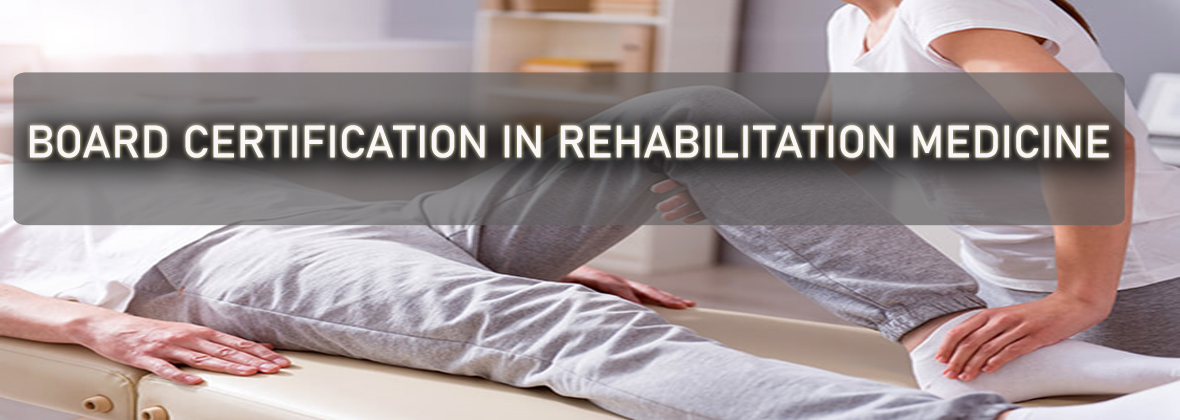
![]()
The successful completion of post-MD (Medicine) training programme in Rehabilitation Medicine will entitle the trainee to be eligible for Board Certification by the Postgraduate Institute of Medicine as a Specialist in Rehabilitation Medicine.
Rehabilitation Medicine is the part of the science of medicine involved with the prevention and reduction of functional loss, activity limitation and participation restriction arising from impairments due to acquired or congenital chronic disease conditions or injuries in musculoskeletal, neurological, cardiac and respiratory systems; management of disability in physical, psychosocial and vocational dimensions; and improvement of function. The focus of the specialty is on persons with complex disabilities among all age groups of people ranging from children to elderly. Rehabilitation Medicine emphasises maximum possible restoration of the physical, cognitive, psychosocial and vocational functions of the person, the maintenance of health and the prevention of secondary complications of disability. The Consultant in Rehabilitation Medicine should possess the expertise in the holistic management of the effects of above disorders.
![]()
By the end of the training period,
- the trainee will have the knowledge and skills to promote the health and wellbeing of people with disability, and will be aware of and understand the social and cultural factors which influence disability and their impact on the rehabilitation process.
- the trainee will be able to formulate a management plan that respects and includes the patient needs.
- the trainee will be able to assess and record the common psychological disorders, psychosocial and behavioural consequences commonly seen in disabling disorders, and also the corresponding contextual factors that influence activity and participation.
- the trainee will be able to coordinate the care of individuals with disabling conditions in a wide range of settings from the acute hospital environment to the individual’s home in the community.
- the trainee will have the knowledge and skills necessary to work with rehabilitation teams in different settings, and within and across health, social and community based organisations.
- the trainee will have developed leadership skills such that they can deliver, manage and develop a rehabilitation service. These leadership skills are seen as key, without which trainees will not be able to take up a consultant role.
- the trainee will have an understanding of the ethical and medico-legal framework within which decisions are made and respect for how others’ ethical, moral or religious frameworks affect their decision making.
![]()
- Applicants should have passed the MD (Medicine) examination.
- Applicants should not have already applied to be enrolled in the training programme in any other subspecialty or be already Board Certified in any medical field.
Please refer to the relevant prospectus for the most up to date information. The prospectus of a particular programme contains official information pertaining to a programme approved by the Board of Management, University Senate and the University Grants Commission